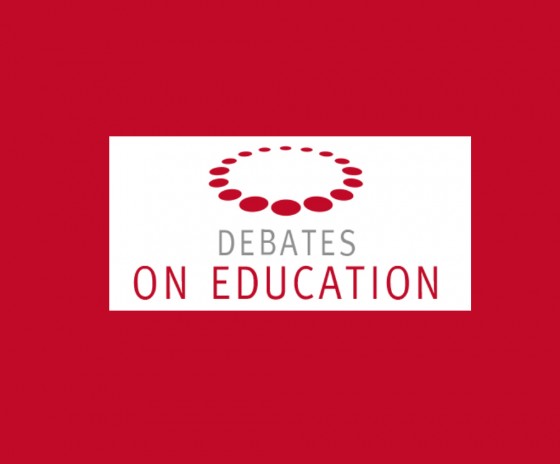Debates on Education with Melissa Benn, British writer and campaigner for inclusive, comprehensive and state education. Event organized by the Universitat Oberta de Catalunya (Open University of Catalonia) and the Jaume Bofill Foundation, with the collaboration of MACBA. http://www.debats.cat, #debatseducacio
She is the founder of the United Kingdom's Local Schools Network. It is an initiative that seeks to highlight the key role state schools have to play in social cohesion and, at the same time, show their successes to debunk the myths and false beliefs that justify some of the education reforms taking place in the United Kingdom.
SUMARY
What is the current status of education in England?
- It is driven by neo-liberal criteria. Competitiveness is the overriding principle. Many teachers act unethically simply to get better results. It is a system that encourages individualism and moves away from comprehensive education.
- Unlike previous Conservative governments, in the last five years, the government has made an effort to improve public education, promoting the "academy" schools. However, it has been decided to entrust the "public education revolution" to the private sector, forming an alliance between government, the private sector and the tertiary sector. Melissa Benn calls them "educational evangelists". It has brought religious groups onto the governing boards of state schools.
- Local stakeholders or the educational community, which has more experience in education, have not been involved in this revolution. Melissa Benn thinks that the educational community is responsible in part for this situation. "Those who believed in comprehensive education were not able to reform it and left the field open to other players." This trend was set in motion with the previous education policy, under Labour PM Tony Blair.
- Families are consumers who choose schools on the basis of their performance; they are not members or stakeholders of a collective project.
- Even though the government has prioritized education as a driving force for the economy and a means for bringing an end to social inequalities, in actual fact the system perpetuates inequalities instead of reducing them; the results are not good and many teachers suffer burnout.
- What is the global context of education?
- Education is becoming standardized around a closed syllabus which gives priority to performance in core subjects such as Language or Mathematics.
- Educational research has fallen.
- Schools are empowered for self-management.
- Academic performance has become the measuring stick for rewarding or penalizing schools, using standardized tests. That is why reports such as PISA are so important.
- Subjects that make education more "fun" or interesting are not valued.
- "State education is at risk."
Alternatives for the future
- It must be acknowledged that the school alone cannot end inequality. Great Britain is not Finland. There is an enormous class inequality that the school alone cannot eradicate.
- A space must be made for debate and reflection, with the involvement of the local community, that stresses quality above quantity (numeric results) and broadens the syllabus.
- State schools need to learn from the elite schools in the area of individual attention to pupils. And that means spending more on staff.
- We need to get back to the neighbourhood schools, founded on democratic values and embedded in their communities.




